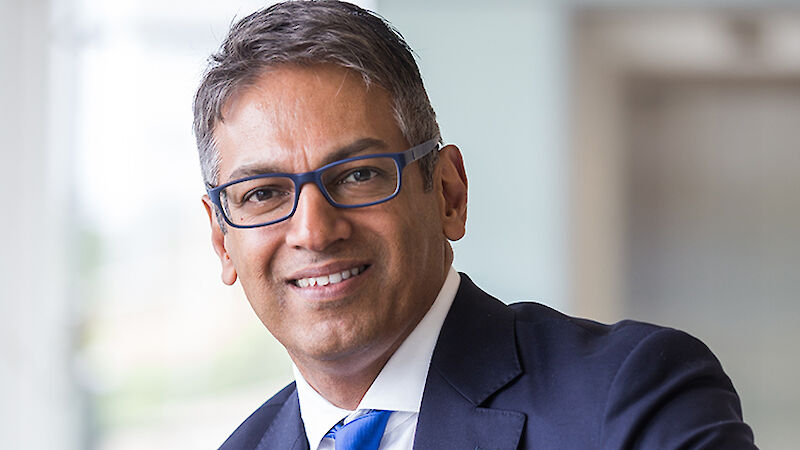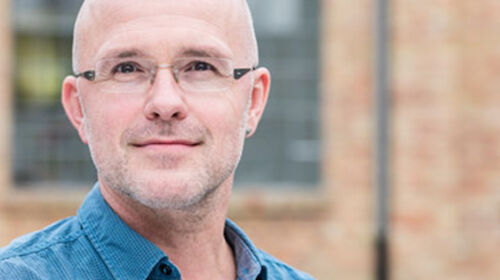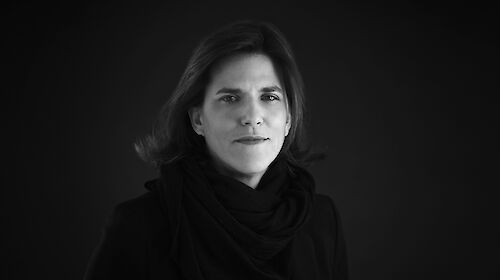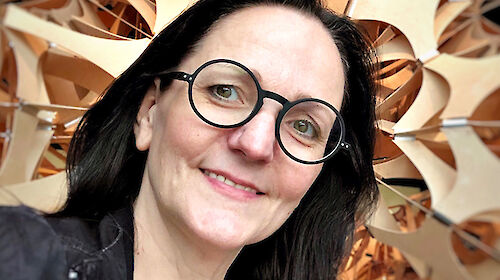“Digital events are the key to growing face-to-face events”
GCB FutureTalks #11 with Sherrif Karamat, CEO at PCMA
 © Sherrif Karamat / PCMA
© Sherrif Karamat / PCMA
Matthias Schultze spoke with Sherrif Karamat, CEO at PCMA, to discuss the business event industry’s current challenges and its future opportunities. He is convinced that destinations and event organizers must provide multi-channel event formats to grow their audiences in the future.
Matthias Schultze: What does the current situation – the worldwide spread of the corona virus – mean for PCMA?
Sherrif Karamat: Of course, we are initially looking at COVID-19 as a health care crisis, but it has also confronted us with a global human crisis and tremendous economic implications. Therefore, PCMA, like many other organizations, has been profoundly impacted by this crisis. PCMA is a global organization, but I am proud that we were able to remain a very close-knit community.
As such, the ongoing crisis has certainly affected both our employees and members on various levels. Our entire team is currently working from home and this change has been emotionally difficult. We also had to postpone two events so far and other events in the future will surely be affected. Since most of our traditional revenue streams have been impacted by the crisis, we were forced to contain costs which directly affected our employees. At the same time, we had to be extremely nimble and provide badly needed services and resources for our members whilst also offering flexible membership options.
On a positive note: Even though this crisis has been challenging for our traditional revenue streams, our digital products – Digital Experience Institute DEI/Digital Event Strategist DES and our online courses – have been doing tremendously well and enabled us to deliver products to the market much faster than initially anticipated. Even still, the most difficult part of leading an organization during such troubling times is having to layoff valued employees whilst hiring new employees with different skill sets to meet the needs of our members and audiences from around the world.
Matthias Schultze: Hashtag “KeepYourDistance” – how does your current working day look like?
Sherrif Karamat: Just over two years ago, I tasked our technology team with moving our entire operations to the cloud. Therefore, operating remotely was not a difficult transition from a technological standpoint. It certainly was more difficult on a human level, though. Just like our industry, our team is extremely collegial and close-knit. Thus, it has been difficult to only see each other online.
On the other hand, and somewhat ironically, I actually believe that I am currently seeing more of our team and members than ever before. Even still, I have heard from my team that it can be very exhausting to be on these different platforms all day and I can certainly attest to that. Like many of my colleagues, I find that the countless online meetings, working groups and collaborative interactions have made my workdays significantly longer. Maybe it is just me, but the week seems to be one long continuous day where the weekends have blurred.
Matthias Schultze: With which ideas and approaches to the topic of events do you react to the current crisis?
Sherrif Karamat: The first question I had for our leadership, our team and myself was simple: Has our core purpose changed because of the pandemic? The answer is a resounding no. Our purpose is to drive global economic and social transformation through business events. This is traditionally done through knowledge exchange, skill development, community engagements and opportunities for commerce. At this time, and more than ever, PCMA is examining how these core purposes can be achieved in this challenging environment.
We have found that currently we are primarily doing this througsh our online platforms and digital events. Ten years ago, PCMA acquired a company in the digital events space. Today DEI is the leading organization in digital events education and offers a certification called the Digital Events Strategist. Whilst this crisis has had a profound impact on our business, it has also allowed us to evaluate every aspect of our business, launch new innovations, acquire new skills and access new talent to better prepare us for a different tomorrow.
Matthias Schultze: What do you think is important for the business events industry in the coming weeks and months?
Sherrif Karamat: Clearly travel has been severely curtailed and I believe that all types of travel, including business travel, will continue to be impacted in the coming months. In the short-term, the industry must work on restoring travelers’ confidence that they will be safe when travelling – feeling safe will not cut it. That is why I like Delta Airlines’ term of operational transparency – meaning that they are being particularly open and transparent with their customers regarding their health and safety procedures.
I also believe that we will be hearing the buzz term “staycation” more often. This will, however, open up incredible opportunities for local businesses to become more creative in attracting their citizens to local experiences that they never knew existed. Furthermore, it will take some time for foreign travel to rebound. That is why Destination Marketing Organizations (DMOs) must also work with local businesses more than they have done in the past. This will provide DMOs with an incredible opportunity to redefine their roles within their communities as key economic and social drivers.
Matthias Schultze: What is the long-term effect of this exceptional situation on events and event formats?
Sherrif Karamat: Even though we are still in the early stages of this pandemic and the loss of life has been extremely tragic, I do believe that opportunities abound for the future. In the past, many event organizers have been primarily concerned with delivering their events through the face-to-face channel. However, they should have put their audiences and the event’s desired outcomes in the foreground. I firmly believe that event organizers must innovate and prepare to deliver through multiple channels including face-to-face, online, print, and social formats.
This will surely require new approaches and skill sets, and it will ultimately enable event organizers to grow their audiences. For example, think of a European football match with a stadium capacity of 80,000 fans – it would be extremely limiting to the team’s owners if their audience was limited to that number. However, with broadcasters, color commentators, instant replay, AI/AR/VR camera personnel and other formats, that same club could perhaps reach 800 million fans around the world through online formats.
Such an endeavor requires different skill sets and talents, and it also drives different revenue streams. Thus, why shouldn’t the same be true for the business event space? We must promote innovative thinking within our industry because digital events are the key to growing face-to-face events and not the other way around – whatever can be digitized will be digitized and there is no way to deny this progress.
Organizations refusing to adjust will miss a golden opportunity and are doing it at their own peril, because customers will ultimately decide which channels are best suited for them. We must realize that destinations and event organizers are given a tremendous opportunity to grow their brands by using digital and social channels whilst simultaneously driving face-to-face demand.
 ©
© ©
© ©
©